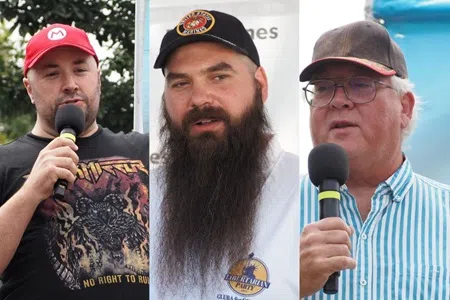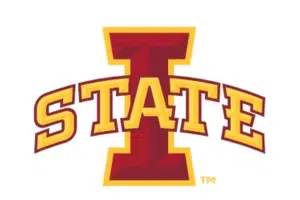(Des Moines) Iowa Libertarian congressional candidates will not appear on state ballots in November after a decision Wednesday by the State Objection Panel.
The panel, made up of Iowa Secretary of State Paul Pate, Attorney General Brenna Bird — both Republicans — and Auditor Rob Sand, a Democrat, voted 2-1 to uphold the challenges to three Libertarian candidates. With the decision, Nicholas Gluba, running in Iowa’s 1st congressional district, Marco Battaglia in the 3rd District and Charles Aldrich in the 4th District will not appear on Iowans’ ballots in the 2024 general election.
The Libertarian candidates are able to challenge the objection panel’s ruling in district court, with a deadline of Sept. 3 for appearing on the ballot. Iowa Libertarian Party Chair Jules Cutler said that while nothing has been confirmed, the party plans to appeal the decisions in court, and will campaign as write-in candidates for the election if the appeals are not successful.
The challenges were filed by Republican voters, some in leadership positions throughout the state, who said that the Libertarian Party of Iowa did not hold valid county conventions for nominating the congressional candidates in accordance with state law.
At the meeting, Republican attorney Alan Ostergren said the objections were filed because the Libertarian county conventions were held the same day as the party’s precinct caucuses, on Jan. 15, despite state law stating that convention delegates selected at the caucuses do not not officially begin their term until the day after they are selected.
Because of this language, the delegates elected at precinct caucuses could not take valid action at the county conventions held the same day, Ostergren said, making these conventions and the June 8 special nominating conventions improper.
Cutler said it was “embarrassing” that the Libertarian Party of Iowa did not follow the exact procedures laid out, but that the nominating process was conducted with the necessary compliance for candidates to appear on state ballots.
“It is a learning process, it is growing pains,” Cutler said. “But at the end of the day, we are substantially compliant with the law.”
Sand argued in the meeting that he did not believe the objectors had standing to file the challenges, as they are Republicans and did not participate in the Libertarian candidate nominating process. He also said the Iowa statute allows voters to challenge candidates based on their nominating papers and certificates of nomination, not their convention process.
“The statute lays out what you can object for, it doesn’t say you can poke around in a minority party’s business and try to find something where they screwed up to make an objection to,” Sand said in a news conference following the hearing.
Sand filed a dissent on his objections to the panel decision Wednesday, writing that “the panel ignores the 1st Amendment in favor of preserving the political status quo.”
Sand said the panel had a duty to approach challenges with the mindset of providing “every lawful opportunity for electors to express their preference,” and called for Libertarian candidates to appear on the ballot.
“Our job here is not to err on the side of kicking people off the ballot,” Sand said. “Our job is to err on the side of keeping them on.”
Bird said at the meeting that Iowa law “makes it clear” that caucuses and county conventions cannot be held at the same time. She also said the State Objections Panel has a precedent of reviewing nominating conventions, saying that the body met to discuss the 2017 Libertarian Party convention process.
The Libertarian Party previously lost its major party status, but regained it in 2022 after its gubernatorial candidate, Rick Stewart, won more than 2% of the vote in the general election. Bird said the panel precedent states that major party status “comes with obligations to comply with Iowa Code,” which she said the Libertarian Party did not comply with in nominating congressional candidates.
Pate said it was his job as Secretary of State to make sure enforcement of election laws are “consistent.”
“It’s not an ideal situation but the rules are the rules,” Pate said. “And I, as the commissioner of elections, don’t get to make them up, I get to enforce them as they are. … I respect the fact that there’s a lot of passion, both by the candidates and by the political parties, and I just hope that they take some time to understand this is an important step to be a candidate. And if you want to do that, you need to do your homework. You need to know what you have to get done to be a successful candidate, to get past the start of the block. That failed to happen.”
(Photos by Robin Opsahl and Jack O’Connor/Iowa Capital Dispatch; illustration via Canva)













